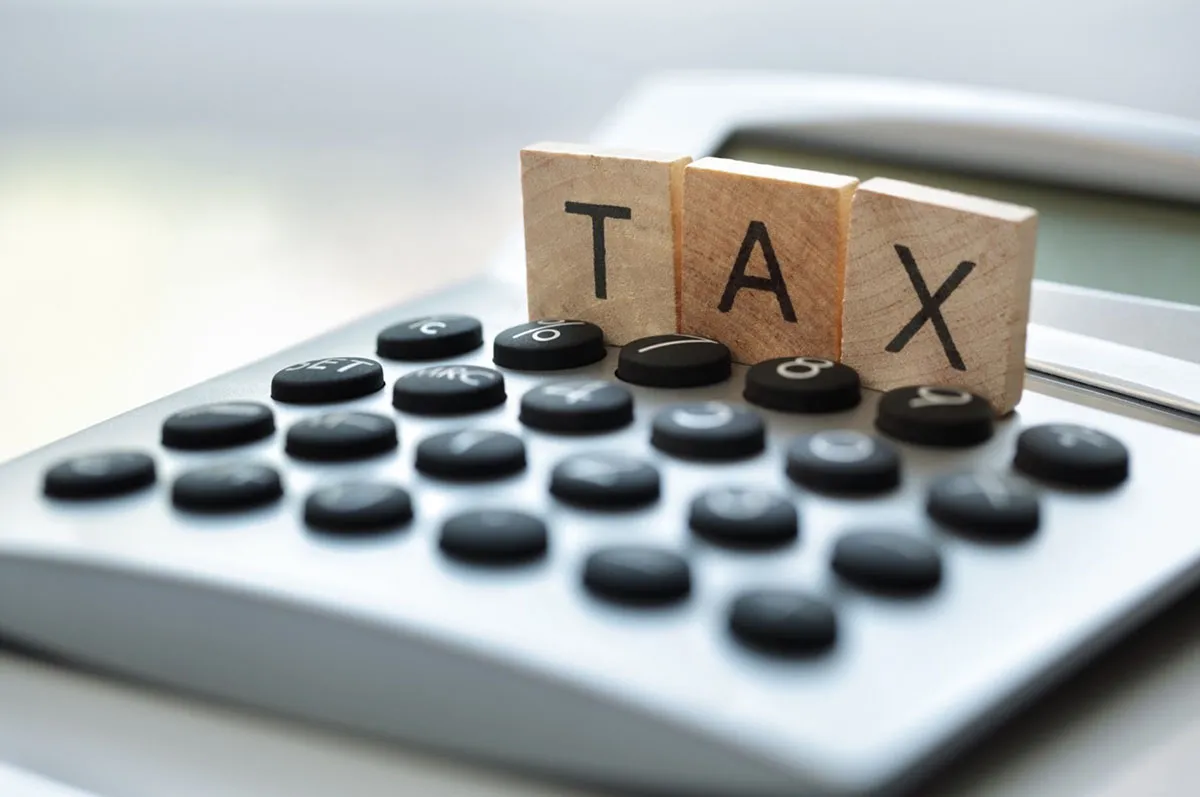
Life happens. Sometimes that can leave us between a rock and a hard place; like not being able to pay taxes and also afford basic living expenses. This can be stressful for taxpayers who are trying to make ends meet. Filing for a currently not collectible status (CNC status), may be the best option to help you get back to a point of financial stability.
If your debt is classified as CNC, you can apply to get the debt transferred to this status. In this article, you will learn about the benefits of this status, how to apply for it, and how to find out if you qualify for it.
What does it mean when your IRS debt is CNC?
IRS debt is considered “currently not collectible” if you’re behind on payments. You may be facing financial hardship and need to find alternative payment arrangements.
If you owe the Internal Revenue Service (IRS) and can’t make the payments without facing hardship, you may qualify for CNC status. You must show that paying back your taxes has impacted your ability to pay for essential living expenses. For example, If you can’t afford the car payment, the IRS may grant you CNC status.
What do I do If I can’t manage my tax debt?
If you are struggling to manage your debts, there are a number of things that you can do to get yourself back on track. While you should always seek professional help, there are several ways to manage your debt.
- You can contact the IRS to discuss available options.
- You can file for bankruptcy if you’re struggling to pay your debt.
- You can set up a partial payment installment agreement with the IRS.
- You can also consider an Offer in Compromise to reduce the amount of money you owe.
If you can’t make your tax liability payments, the IRS may temporarily suspend collection actions while you try to work out a plan. In general, currently not collectible status prevents the IRS from garnishing your wages or taking money from your bank account. In addition, it prevents the IRS from requiring you to enter into an installment agreement.
However, it does not mean your debt is completely eliminated, and you should not expect the IRS to stop pursuing you.
How to find out if you qualify for this status
Currently Not Collectible IRS Debt (CNC) refers to debt that is deemed uncollectible by the IRS. If you owe more money than you can afford to pay each month, you may qualify to file under the IRS’s “currently not collectible” status.
This means that you cannot be sued by the IRS for unpaid tax debt. However, you must understand that the IRS has a 10-year statute of limitations for pursuing tax debt. As such, it is important to discuss your options with an attorney who is experienced with tax law.
Take a glance at your monthly income

You must meet specific requirements to apply for this status. First, you need to show that you are experiencing an unfair economic hardship. The IRS looks at each case individually, but they may ask for additional information to evaluate your financial situation. The IRS may require you to provide proof of things such as transportation to work, medical care, and clothing needs.
To apply for this status, you will need to contact the IRS and speak to their Taxpayer Advocate Service (TAS) or hire a tax professional to file on your behalf. You will need to provide information about your income and expenses to be considered for Not Collectible Status. If you do not have a monthly income or your only income is through Social Security, welfare, or unemployment, and you owe taxes, speak to the IRS about your currently not collectible status.
You may also need to submit documentation to prove that you do not have the ability to pay your tax debt. Alternatively, you may qualify for an installment agreement to make payments easier depending on how much income can be used aside from basic living expenses. If you face significant hardship and you cannot afford to pay your tax debt, taking action to file for this status will help you avoid a collection agency from pursuing you.
Benefits of having your IRS debt classified as CNC
If you owe back taxes to the IRS, having your tax debts classified as CNC will help you avoid the hassles associated with a lawsuit. CNC status can reduce the stress of an unpaid tax bill by preventing adverse collection actions like wage garnishment, bank levies, and asset seizures. However, you should be aware that you may still be subject to penalties and interest.
Before applying for currently not collectible status, you need to gather all of your financial information. Typically, you will need to provide three months’ worth of bank statements as well as receipts for medical expenses. This information will help the IRS determine whether or not you’re eligible for CNC status. If you’re approved, the IRS will put a “closing code” on your account to indicate that it’s currently-not collectible.
Currently not collectible status is not a permanent solution for your financial problem. It only lasts for a certain amount of time, depending on the situation. After this time, the IRS may decide to re-review your case, and then reclassify your debt as CNC again.
Will CNC status affect my tax refunds?
Yes, as long as you are currently not collectible status, the IRS will take your tax refunds.
How to apply for this status
Having non-collectible status allows you more time to make your tax payments and get your financial life back on track. However, the IRS will continue adding penalties to your account and keeping any tax refunds you’ve received in the past. This is why it’s important to contact a tax professional if you’re interested in getting this status.
First, you’ll need to submit proof that you’re unable to pay your taxes. This can be done by contacting a tax attorney, filling out IRS Form 433-F (Collection Information Statement), and providing documentation of your financial situation. The IRS will then review your request on a case-by-case basis.
Once you’ve applied for CNC, the IRS will pause all collection actions against you until your financial situation improves. In most cases, the IRS will stop garnishing your wages or levying your bank account if you apply for CNC. If you’re eligible for CNC, you must be in economic hardship and have little or no money left over after paying your basic expenses.
How will this affect your credit score?
You might be wondering how a not-collectible IRS debt will affect your credit score. This debt is not recorded on your credit report and is not included in the three major credit bureaus’ score calculations.
However, failure to pay this debt may have indirect consequences, such as a lien on your property. However, there are ways to minimize the negative impact of this type of debt.
It might affect your ability to qualify for a mortgage

Although you may not see a direct effect of this type of debt on your score, it will have an impact on the number of loans that you apply for. Having an outstanding tax debt can affect your ability to qualify for a mortgage.
Lenders will consider your debt servicing ability and security when determining your mortgage eligibility. Therefore, owing an IRS tax debt can prevent you from purchasing a home. However, it is possible to pay off the debt through a debt resolution process with the commission.
What if I am facing a federal tax lien?
The IRS will put a lien on your property if you owe more than $10,000. This public notice of debt could negatively affect any future loans or lines of credit and might even hurt chances for employment prospects in some cases.
What happens if your financial situation changes?
While the current not-collectible status can provide you with a period of time to get your financial situation back in order and pay your taxes, the debt still has to be paid and interest is still accruing.
This is why it is critical to pursue an Offer in Compromise as soon as possible. However, it is important to remember that an Offer in Compromise is only available to taxpayers who are presently not collectible.
To be eligible for this status, you must have no liquid assets that can be sold to pay off the debt. This includes any equity in your home. The IRS will also want to see a letter that you have been rejected from applying for a loan. Essentially, this means you can’t afford to pay off your debt because it is beyond your means to pay it.
The first step in getting a CNC status is to contact the IRS. Then, you’ll need to provide details about your income and expenses. You may need to provide supporting documentation as well. If you’re able to prove that you are experiencing financial hardship, you may be eligible for an installment agreement. Installment agreements make payments more manageable.
Can you still file your taxes even with CNC status?
If you are facing a difficult financial situation, you may be wondering: Can You Still File Your Taxes Even If You Are CNC Status? CNC status is the status that enables you to defer paying your taxes until your financial situation improves. However, you must have enough proof to convince the IRS that you’re experiencing financial hardship. If you can prove that you have a serious problem, you may still be able to file your tax return.
The IRS reviews your financial situation every year to decide whether you should be placed in CNC status. They look at your income, information statements, tax returns, and living expenses to determine if you meet the qualifications. If your financial situation improves, the IRS will consider removing you from CNC status.
The IRS can resume collection activity if your financial situation has improved. Even if you don’t file an income tax return, they will know about any wages or salaries that are reported on W2s and 1099’s for the year(s). If there is an increase in revenue that triggers their “closed” code then it may be necessary to contact them with regard to installment agreement options
The IRS can also limit some of your expenses. For example, they can disallow car payments over $497. You must have documentation for each of these expenses. Your monthly income and allowable living expenses are calculated to determine your net disposable income. Net disposable income is the amount of money the IRS expects you to pay toward your tax liability every month. If you have very little disposable income, CNC status may be right for you.
Contact an experienced tax attorney
If you are having trouble paying back your tax debt, you may qualify for a currently not collectible status. This status allows you to avoid collection action, as long as you can prove that you don’t have the money to meet your living expenses. An experienced tax attorney, like Joseph Damiens, will help you determine which option is best for your situation.
There are several reasons why you may be eligible for CNC status. Many taxpayers face extreme financial hardship, and the IRS may be willing to give them a break. This status allows you to get back on your feet and can prevent the IRS from enforcing collection actions.
Talk to an experienced tax attorney, Joseph Damiens today. Schedule your confidential consultation by calling (601) 957-9672.
Contact us online or call (601) 957-9672 to schedule a free consultation.



